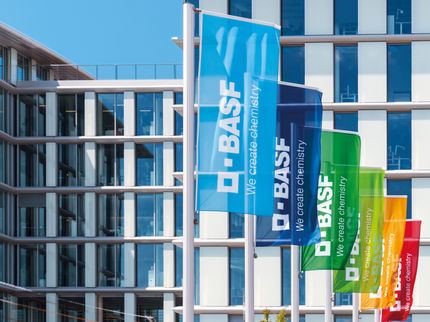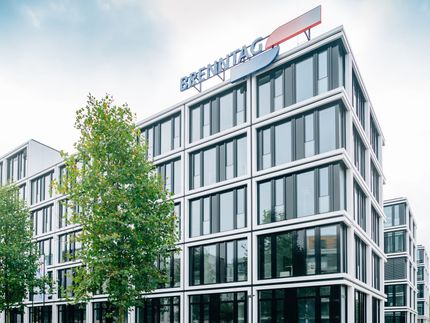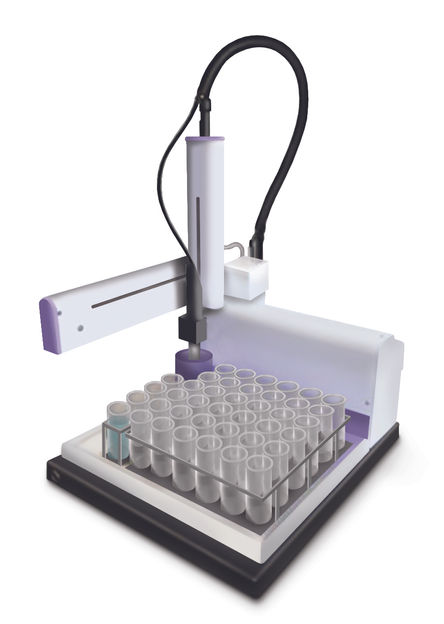Sartorius continues on its dynamic growth track
Advertisement
Sartorius performed dynamically in the third quarter as well, achieving double-digit growth rates in sales revenue, order intake and earnings in the first nine months.
“Sartorius achieved significant double-digit growth rates in sales revenue and earnings for the first nine months of the year as well,” said Executive Board Chairman and CEO Dr. Joachim Kreuzburg. “In a challenging global economic environment, our Lab Products & Services Division showed a very robust third-quarter performance. At the same time, in the Bioprocess Solutions Division we have been benefiting from ongoing high demand and, beyond this, have continued to grow faster than the market. In view of our positive results, we now expect that Bioprocess Solutions and, therefore, the entire Group will reach the upper end of their respective sales forecasts.”
The Group increased its sales revenue in the first nine months by 15.5% in constant currencies (reported: +17.5%) to 1,355.8 million euros; order intake grew 16.1% (reported: +18.1%) to 1,435.0 million euros.
Underlying EBITDA rose overproportionately relative to sales by 22.7% to 361.1 million euros. The respective margin was 26.6% after 25.5% in the year-earlier period, with slightly less than one percentage point of this increase attributable, as expected, to the IFRS 16 Standard to be applied for the first time in 2019. Relevant net profit for the first nine months of 2019 totaled 153.2 million euros, which equates to a year-over-year increase of 21.2%. This yielded earnings per ordinary share of 2.23 euros (9M 2018: 1.84 euros) and earnings per preference share of 2.24 euros (9M 2018: 1.85 euros).
Business development in the regions
In the reporting period, Sartorius grew in all regions, with Asia | Pacific showing the highest dynamics, recording a sales gain of 21.5% to 348.1 million euros. The Americas region achieved a 14.7% increase in sales revenue to 461.7 million euros against high prior-year comparables. EMEA (Europe, Middle East and Africa), which continues to account for the largest share of Group sales, also developed positively, increasing its revenue by 12.7% to 546.1 million euros.
(All growth rates for the regions are in constant currencies.)
Key financial indicators
The Sartorius Group has a very sound balance sheet and financial base. Its ratio of net debt to underlying EBITDA was 2.1 relative to 2.4 at year-end 2018. Sartorius’ equity ratio increased slightly from 38.5% as of December 31, 2018, to 38.7% due to the company’s strong earnings position, despite the dampening effects resulting from a change in an accounting rule. The ratio of capital expenditures (CAPEX) to sales revenue further decreased, as projected, to 12.5% (9M 2018: 13.3%) after several large expansion projects had been completed.
Business development of the divisions
The Bioprocess Solutions Division that offers a wide array of innovative technologies for the manufacture of biopharmaceuticals sustained its high momentum seen in the first half, increasing its sales by 19.4% (reported: +21.6%) to 1,025.0 million euros. This gain was fueled by ongoing strong demand across all product categories, particularly in project business in Asia. Order intake for Bioprocess Solutions rose to 1,100.0 million euros, which also equates to a substantial increase of 19.9% (reported: +22.0%) against strong comparables.
The division’s underlying EBITDA was up 25.7% from the previous year’s level, attaining 300.6 million euros. Its earnings margin rose from 28.4% to 29.3% due to economies of scale and as a result of the change in an accounting rule.
The Lab Products & Services Division that specializes in technologies and products for laboratories in the pharma sector and in life science research, as well as in a few other segments, achieved sales growth of 4.9% (reported: +6.5%) to 330.8 million euros in a partly challenging economic environment. Order intake for the division was robust, up 5.3% (reported: +6.9%) to 335.0 million euros.
The division’s underlying EBITDA rose year over year by 9.9% to 60.5 million euros. The corresponding margin was 18.3%, up from the previous year’s level of 17.7%, and was positively affected by the change in an accounting rule.
(All growth rates for sales revenue and order intake are given in constant currencies.)
Full-year guidance for 2019 specified
Based on the Sartorius Group’s business performance in the first nine months and ongoing high demand for Bioprocess Solutions, management specifies its financial guidance for the full year of 2019 as follows:
The Group’s sales revenue growth in constant currencies for the full year is now expected to reach the upper end of the bandwidth of about 10% to 14%. Regarding profitability, management continues to forecast that the company's underlying EBITDA margin will rise to slightly more than 27.0%, with the operating gain projected to amount to about half a percentage point and the remaining increase expected to result from changes in an accounting rule.
The ratio of capital expenditures (CAPEX) to sales revenue remains projected to be around 12%, down from the year-earlier figure of 15.2%.
For the Bioprocess Solutions Division, management now expects that the upper end of its sales guidance of about 13% to 17% will be reached. Management’s forecast for the division’s underlying EBITDA margin remains unchanged, which is projected to increase to slightly more than 29.5% compared with the prior-year figure of 28.6%. The operating gain of this increase is expected to account for around half a percentage point.
For the Lab Products & Services Division, Sartorius continues to anticipate that due to the softer economic environment, the lower range of the division's sales forecast of about 5% to 9% will be reached. The division's underlying EBITDA margin is still expected to be slightly below 20%, with the operating increase accounting for about half a percentage point.
All forecasts are based on constant currencies, as in the past years. A disorderly exit of the United Kingdom from the EU and an exacerbation of international trade disputes could impact supply chains in both divisions to a certain degree in spite of the measures already taken to counteract these developments. A reliable prognosis concerning possible effects cannot be made at the current time.





























































